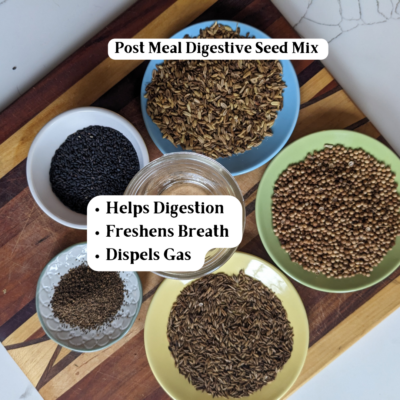
1 in 3 Teens Is Now Prediabetic
We’re referring to type 2 diabetes throughout this blog post.
The CDC just dropped an alarming statistic:
👉 1 in 3 U.S. teens is now prediabetic.
Let’s talk about why that matters — and what we can do about it.
Why This Is a Big Deal
Two reasons:
1. Diabetes is predicted to bankrupt our healthcare system.
By the year 2050, it’s estimated that 1 in 3 adults will have type 2 diabetes.
And diabetes doesn’t just mean “high blood sugar.”
In Ayurvedic terms, that excess sugar becomes Ama — a toxic burden in the bloodstream that damages tissues, weakens immunity, and leads to serious complications.
Diabetes-related complications can include:
→ Heart disease
→ Stroke
→ Kidney failure
→ Vision loss
→ Nerve damage
→ Poor wound healing
→ Higher infection risk
→ Amputation in advanced stages
It’s not a small thing — and it’s showing up younger than ever. This is a disease that has the potential to immensely impact quality of life now, and for future come.
2. It impacts how you feel.
Health and happiness are your birthright. You’re meant to feel good — clear, energized, and capable.
But prediabetes and blood sugar issues can chip away at that.
You might experience:
→ Fatigue
→ Mood swings
→ Sugar cravings
→ Insulin resistance
→ Poor sleep
→ Brain fog
→ Trouble concentrating
→ Poor circulation
& more
How Did We Get Here?
There are a lot of reasons diabetes is on the rise — some obvious, some less so.
🍭 Let’s start with sugar.
Two hundred years ago, the average American consumed 1–2 pounds of sugar per year.
Today, it’s more like 100–150 pounds — much of it hidden in processed food.
But sugar is just one part of the story.
Other Major Drivers of the Blood Sugar Crisis
🧂 Nutrient Deficiencies
Modern farming practices, processed food, and soil depletion have left us low in key nutrients that regulate blood sugar:
- Magnesium – Needed for glucose uptake + insulin signaling.
- Chromium – Improves glucose tolerance.
- Zinc – Crucial for insulin production + release.
- B Vitamins – Power your mitochondria (your cells’ energy engines).
- Vitamin D – Supports insulin sensitivity + pancreas health.
- Antioxidants – Buffer oxidative stress that drives insulin resistance.
Without these, inflammation rises, insulin signaling breaks down, and blood sugar stays high.
🚩 Other Contributing Factors
→ Ultra-processed food
Stripped of nutrients + fiber. Spikes blood sugar. Drives insulin resistance.
→ Toxins
Plastics, pesticides, heavy metals — all disrupt hormones + metabolism.
→ Chronic stress + screen time
Raises cortisol → raises blood sugar → worsens insulin sensitivity.
→ Poor sleep
Impairs glucose control and appetite regulation.
→ Sedentary lifestyle
Less muscle use = less glucose burned = more blood sugar build-up.
→ Skipped meals
Blood sugar crashes, cortisol spikes, and reactive overeating follow.
→ Caffeine on an empty stomach
Cortisol spike → blood sugar spike → crash → repeat.
→ Late-night eating
Interferes with natural insulin rhythms and repair processes.
→ Constant snacking
Keeps insulin high all day. Leads to cellular resistance and crashes.
→ Refined carbs without fat/protein
Spikes blood sugar. No buffer to stabilize.
→ Emotional dysregulation or trauma
Chronic stress = chronic blood sugar issues.
→ Gut dysbiosis
Leaky gut, inflammation, disrupted insulin signaling.
→ Endocrine disruptors
Chemicals like BPA mimic/block insulin. Linked to obesity + diabetes.
→ Liver overload
When your liver’s bogged down, it can’t regulate blood sugar effectively.
→ Lack of sunlight
Low vitamin D = poor insulin sensitivity + metabolic dysfunction.
So What Do We Do?
This might feel overwhelming — but here’s the truth:
Type 2 diabetes is both preventable and reversible.
This is a lifestyle-driven disease. Which means there are lifestyle-based solutions — ones that can help you not just avoid long-term complications, but feel better now.
Where to Start
✔️ Eat more whole, unprocessed foods
✔️ Establish consistent meal times
✔️ Balance carbs with protein and healthy fats
✔️ Get regular movement + morning sun
✔️ Work with a holistic practitioner to assess nutrient status, gut health, and metabolic function
You’re Not Powerless.
This doesn’t have to be your future.
Not for you. Not for your kids.
We’re not waiting around for a broken system to catch up.
And we’re not settling for “management” when healing is possible.
When you understand what’s actually driving blood sugar dysfunction,
you can make small, strategic changes that add up fast.
Changes that help you feel clearer, stronger, more in control — now.
⚡Want to feel better? Start now.
🩺 Take the free mini health assessment (personally reviewed).
It’s quick. It’s free. And it might just be the first real step in a different direction.



